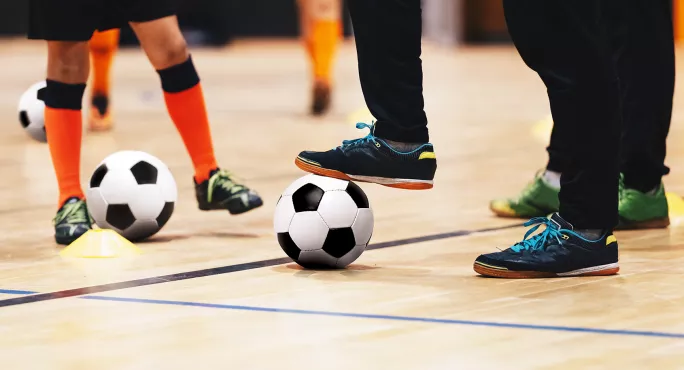Teacher training in primary-level physical education is ŌĆ£woefully inadequateŌĆØ, the chief executive of the Youth Sport Trust has warned a committee of MPs.
Giving evidence to the Commons Culture, Media and Sport Committee today, Ali Oliver called for PE to become a core curriculum subject so that it commanded a ŌĆ£higher statusŌĆØ, which would ŌĆ£bring with it a level of accountability which would drive up standards and commitmentŌĆØ.
She told the MPs that core status ŌĆ£would undoubtedly have a huge impact on teacher training, which is a problem at the moment, particularly in primary, where our primary classroom teachers who deliver PE today predominantly have, on average, four to six hours of training in PE, which is woefully inadequateŌĆØ.
And she told the committee that training problems were exacerbating a situation where there were 41,000 fewer hours taught in PE in 2023-24 compared with 2011-12. Less than half of children are getting what the chief medical officer recommends as the minimum amount of activity a day, Ms Oliver added.
ŌĆśRestoring the statusŌĆÖ of PE
ŌĆ£More worryingly, we know that 30 per cent of children get less than 30 active minutes a day. I think there are real concerns of those children who are largely inactive, and the consequences for their health and wellbeing, for their engagement and learning. Of course, for their overall happiness and long-term health.ŌĆØ
The Youth Sport Trust said that becoming a core subject would ŌĆ£restore the value and statusŌĆØ of PE so that it sits among other subjects in a broad and balanced curriculum
Ms Oliver added: ŌĆ£Core status would bring lots of benefits, but we would like a core status because PE genuinely is an access subject that should be part of the foundation of every childŌĆÖs learning.
ŌĆ£And today, because they are not getting [physical activity] out of school, theyŌĆÖre not climbing trees, they donŌĆÖt roam in their community, they arenŌĆÖt playing out as much as they did, we have to create that opportunity in school so that they are then healthy, successful learners.ŌĆØ
Ms Oliver said the Youth Sport Trust also wants to see changes to bring clarity to what the GCSE PE syllabus entails.
At present, she said, the GCSE is a GCSE in sports science. ŌĆ£It is not a GCSE in being physically educated or having got to a certain level of physical education. If we are going to have a GCSE PE, letŌĆÖs change that syllabus, or letŌĆÖs be really clear this is a GCSE in sports studies or sports science.ŌĆØ
Ms Oliver called for some form of qualification that demonstrates a studentŌĆÖs physical capabilities.
ŌĆ£You can study, or have experienced physical education every year of your primary and secondary education and leave with nothing on paper,ŌĆØ she said.
ŌĆ£Yes, there is a GCSE in PE. Yes, there are Btec qualifications, but for many children and young people who donŌĆÖt opt for that subject, thereŌĆÖs nothing to show at the end of it.
ŌĆ£ItŌĆÖs really important that children experience some sort of benchmarking, or thereŌĆÖs some sort of passport at the end of school education - a summary of what I can do, what IŌĆÖve learned, where IŌĆÖm going to continue to be active next.ŌĆØ
And she added that the YST and the Association for Physical Education believe that many young people lost out on physical and societal development skills because their early years involved Covid lockdown.
For the latest education news and analysis delivered every weekday morning, sign up for the Tes Daily newsletter





